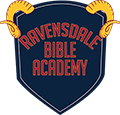At Ravensdale Bible Academy we value proven successful academic models that are innovative and unique. One of the biggest problems with the public school system is that it really hasn’t evolved and it is still using the old German bell system which was designed to train citizens to be blue-collar 9 to 5 workers. Over the past 100 years, there have been several advances in the area of group teaching and techniques that are designed to gain and keep learners attention.
Here are a few of our favorite proven successful academic models:
Finnish Education:
Some consider the Finnish Education system to be the overall best in the world. They have 11 keys to their success which include:
- Less formal schooling equal more options
- Fewer school hours equal more rest
- Fewer instruction hours equal more planning
- Fewer teachers equal more consistency and care
- Fewer teacher changes equal more confidence
- Fewer classes equal more breaks
- Fewer topics equal more depth
- Fewer students equal more individual attention
- Less homework equal more participation
- Less structure equal more trust
KIPP:
KIPP is a charter school system that focuses on inner cities in America. Their students have phenomenal percentages of entering college despite tremendous social and economic difficulties. At KIPP, teachers, students, and families are all united around the same goal: college and a choice-filled life. Through collective hard work and commitment, KIPP students complete college at a rate that is above the national average for all students and four times higher than that of students from similar economic backgrounds. KIPP’s success is driven by:
- High Expectations: KIPP sets clearly defined and measurable high expectations for academic achievement and conduct in order to create and reinforce a culture of achievement and support. Every student is different and KIPP personalizes learning based on a student’s needs, skills, and interests.
- Strength of Character: Success in life depends on both academics and character. KIPP helps students foster character strengths that are essential for their own success and well-being. And empower them to express their voice with power and to improve the world around them.
- Highly Effective Teachers and Leaders: Great schools require great teachers and school leaders. KIPP empowers educators to lead school teams and invests in training to help them grow as professionals.
- Safe, Structured, and Nurturing Environments: Students need physical and emotional safety in order to take risks and learn from their successes and their mistakes. KIPP public schools provide a safe, structured, and nurturing environment with minimal distractions and more time for both academics and extracurriculars.
- KIPP Through College:KIPP college counselors and advisors support students as they prepare for and select the right college and career for their needs and interests. After high school, they help KIPP alumni navigate the social, academic, and financial challenges they might encounter while in college.
Harkness Table:
Using a round table helps drive student engagement and interaction. The goal and purpose of the Harkness Table is to drive Dialectic & Rhetorical conversations.
Classical Christian Education:
A strong focus on critical thinking using rhetoric, logic, and the Socratic Method.
KHAN Academy:
Independent online classrooms verses traditional in-person classes. Bring in the best teachers in the world and give them instant access to anybody, anytime, anyplace, anywhere for pennies on the dollar.
Teach Like a Champion:
Using 49 proven successful techniques that focus on student learning. Professionally developed, passionate & enthusiastic teachers are more important than teaching credentials.
Differentiated Education:
Every student is unique so create individual education plans. Teachers need to be flexible and use different techniques with different students.
Singapore:
Focus on mastery not testing.The Daily 5: is a structure for learning how to read with comprehension. It has 5 components that can be taught daily: 1) read to self, 2) read to someone, 3) listen to reading, 4) word work, and 5) writing.
